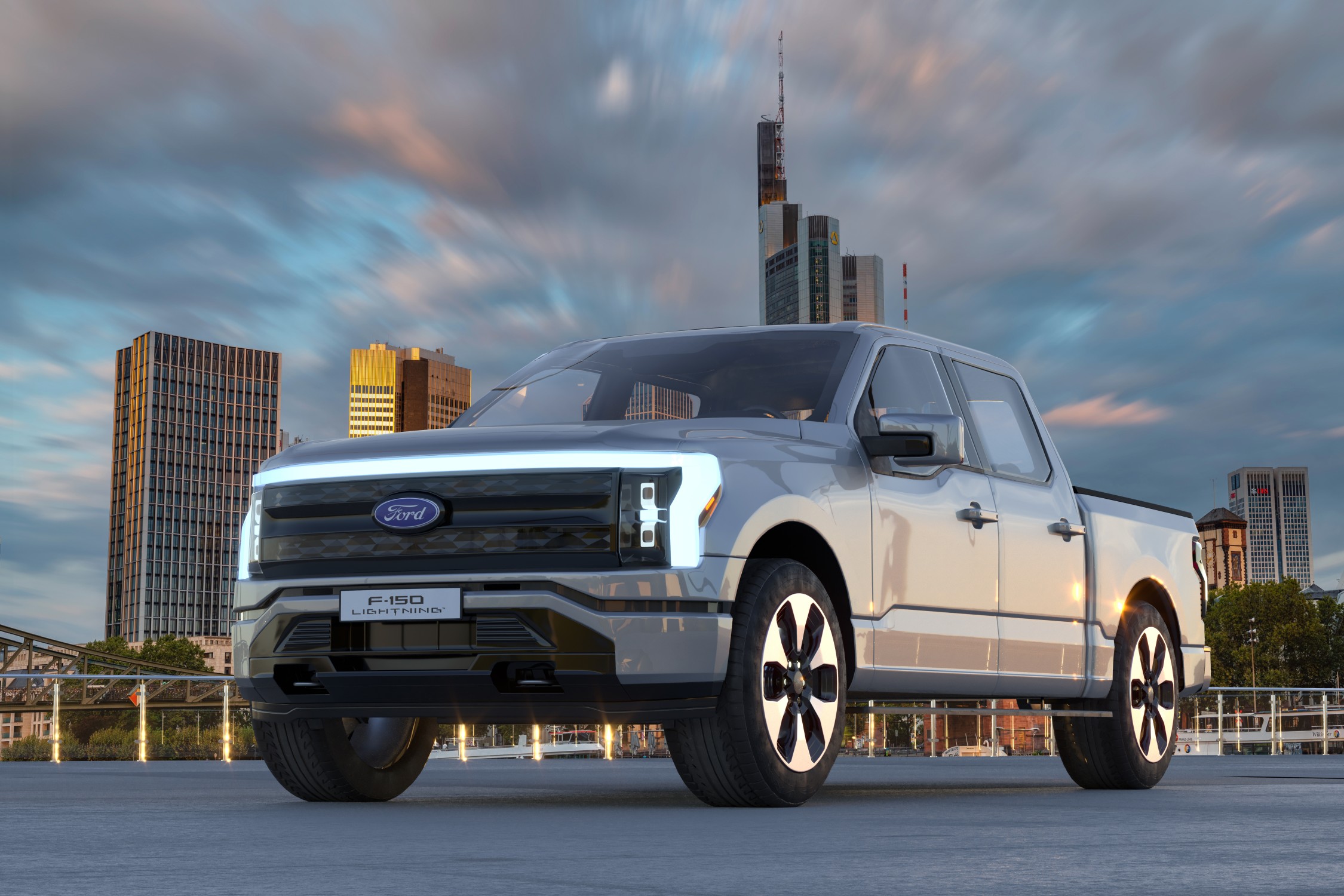Electric Truck Market Intensifies as Ford F-150 Lightning Faces Production Delay Due to Battery Issues

Ford F-150 Lightning: The Highly Anticipated Electric Truck
Ford’s new electric truck, the F-150 Lightning, has been one of the most highly anticipated vehicles in the electric vehicle market. It’s the first fully electric truck from Ford, and it’s designed to offer the same capabilities as the gas-powered F-150, with the added benefit of being environmentally friendly. The F-150 Lightning was scheduled to go into production in the spring of 2023, but the production may be delayed.
Production Delayed Due to Battery Issues
Read More »The Impact of the Delay
The delay in the production of the F-150 Lightning could have significant implications for both Ford and the electric vehicle market as a whole. Ford had previously announced that it would invest $22 billion in electric vehicle development and production by 2025, and the success of the F-150 Lightning was seen as a key component of this strategy. If the delay in production is prolonged, it could impact Ford’s ability to deliver on this investment.
Battery Issues and the Future of Electric Vehicles
Battery issues have been a challenge for electric vehicle manufacturers for years, and the delay in producing the F-150 Lightning highlights the ongoing challenge of battery technology. As electric vehicles become more popular, there is a growing need for more efficient and reliable battery technology. While battery technology has improved significantly in recent years, there is still a long way to go.
The Importance of Sustainable Transportation
Despite the challenges facing the electric vehicle market, sustainable transportation is more important than ever. The transportation sector is one of the largest contributors to greenhouse gas emissions, and adopting electric vehicles is critical to reducing these emissions. While the delay in the production of the F-150 Lightning is disappointing, it’s important to keep in mind the bigger picture of sustainable transportation and its impact on the environment.
The Race for Electric Truck Dominance
The delay in the production of the F-150 Lightning also highlights the intense competition in the electric truck market. The F-150 Lightning competes with other highly anticipated electric trucks, such as the Tesla Cybertruck and the Rivian R1T. These vehicles are all vying for market share in a highly competitive market. The competition will only intensify as electric trucks become more popular.
The electric truck market is still in its early stages, but it’s clear that there is a significant demand for these vehicles. Electric trucks offer the same capabilities as their gas-powered counterparts, with the added benefit of being environmentally friendly. As more consumers become interested in sustainable transportation, the demand for electric trucks will only grow.
The Potential Impact on Ford’s Reputation
The delay in the production of the F-150 Lightning could also have an impact on Ford’s reputation. Ford has been one of the leaders in the automotive industry for over a century, and the success of the F-150 Lightning was seen as a key component of the company’s future. If the delay in production is prolonged, it could impact consumer confidence in Ford’s ability to deliver on its promises.
However, it’s important to remember that battery issues are a common challenge in the electric vehicle industry. Other manufacturers like Tesla have also experienced delays due to battery issues. While the delay is disappointing, it could indicate a larger problem with Ford’s overall strategy.
The Future of Sustainable Transportation
The delay in the production of the F-150 Lightning highlights the ongoing need for innovation in the electric vehicle industry. As the demand for sustainable transportation grows, battery technology must continue to improve. The electric vehicle market’s success depends on the development of efficient and reliable battery technology.
The adoption of electric vehicles also depends on the charging infrastructure’s availability. As more consumers purchase electric vehicles, there will be a growing need for charging stations. Developing a reliable and efficient charging infrastructure is critical to the success of the electric vehicle market.
The Role of Government in Sustainable Transportation
The success of the electric vehicle market is also dependent on the support of government policies. Governments worldwide are implementing policies to incentivize the adoption of electric vehicles. For example, many countries offer tax incentives or rebates to purchase electric vehicles. Governments are also investing in the development of charging infrastructure to support the adoption of electric cars.
The role of government in sustainable transportation is critical to the success of the electric vehicle market. While the market is still in its early stages, it’s clear that the demand for sustainable transportation will only grow. Government policies can accelerate the adoption of electric vehicles and support the development of a more sustainable transportation sector.
The Need for Collaboration in the Electric Vehicle Market
The success of the electric vehicle market is also dependent on collaboration between manufacturers, suppliers, and governments. Teamwork is critical to developing efficient and reliable battery technology and the development of charging infrastructure.
The electric vehicle market is still in its early stages, and many challenges must be overcome. However, the potential benefits of sustainable transportation are significant. As more consumers become interested in sustainable transport, the demand for electric vehicles will only grow. Manufacturers, suppliers, and governments must work together to support the development of a more sustainable transportation sector.
The delay in the production of the Ford F-150 Lightning due to battery issues sheds light on the ongoing challenges faced by the electric vehicle industry. Despite the setback, the electric vehicle market is still in its early stages and has tremendous potential to revolutionize the transportation industry. As more consumers become interested in sustainable transportation, the demand for electric vehicles is expected to grow, leading to increased competition and innovation in the market.
However, the success of the electric vehicle market is dependent on the development of efficient and reliable battery technology and the availability of charging infrastructure. Governments worldwide have a critical role to play in supporting the adoption of electric vehicles through policies such as tax incentives and investment in charging infrastructure.
Collaboration between manufacturers, suppliers, and governments is also essential for the success of the electric vehicle market. As the industry continues to evolve, stakeholders must work together to overcome challenges and support the development of a more sustainable transportation sector.
The delay in the production of the F-150 Lightning is undoubtedly a setback for Ford. Still, it’s important to remember that battery issues are a common challenge in the electric vehicle industry. It remains to be seen how this delay will impact Ford’s reputation, but it’s clear that the race for electric truck dominance is on, and the competition will only intensify.





